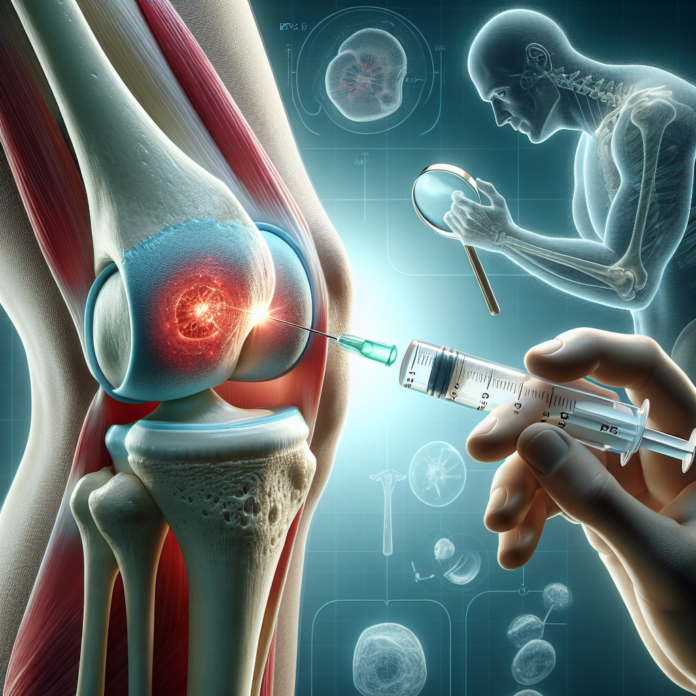Great advancements in medical science continue to offer hope for less invasive treatments for common injuries. One such development stirring interest is the potential use of peptides like BPC 157 to assist in the healing of meniscus tears, a common knee injury traditionally thought to require surgery due to the meniscus’s poor blood supply. In this article, we dive into whether BPC 157 could serve as a non-surgical alternative, exploring insights from Dr. David Guyer, a renowned orthopedic surgeon specializing in sports medicine, anti-aging, and regenerative medicine. While peptides such as BPC 157 are still considered experimental, and evidence remains limited, could they pave the way for new, innovative approaches to healing? Read on as we explore the science, skepticism, and potential behind this intriguing prospect.
The Role of Meniscus and Traditional Treatment Approaches
The meniscus is an essential component of the knee joint, serving as a shock absorber and stabilizer. Located on both the medial (inside) and lateral (outside) sides of the knee, the meniscus cushions the joint by distributing weight evenly across the knee. Unfortunately, due to its limited blood supply, the meniscus has a reduced ability to heal itself when damaged, making tears a common yet challenging issue.
Traditionally, meniscus tears often require surgical intervention, especially if the tear affects young individuals or impairs daily function significantly. However, the idea of using peptides, such as BPC 157, as a non-surgical treatment is gaining attention. So, what exactly is BPC 157, and why might it be considered for this purpose?
Understanding BPC 157 and Its Potential
BPC 157 is a synthetic peptide derived from a naturally occurring compound in the human gastric juice. It’s known for its proposed regenerative properties and ability to promote healing and reduce inflammation. Despite the potential it holds, BPC 157 is still classified as an experimental compound by the FDA. This designation means its use for treating human conditions like meniscus tears is not officially sanctioned, and comprehensive human studies are sparse.
Dr. David Guyer explains that peptides consist of short chains of amino acids, which are naturally produced in our bodies. As we age, the levels of certain peptides decrease, prompting some researchers to explore synthetic options to boost healing capabilities. Laboratories have developed synthetic versions of peptides like BPC 157, which are available through approved compounding pharmacies for those interested in exploring their potential benefits under professional guidance.
Skepticism and Current Understanding
Despite the intriguing nature of BPC 157, Dr. Guyer remains skeptical regarding its efficacy as a treatment for meniscus tears. One of the primary concerns is the method of delivery. Whether taken orally as a capsule or injected subcutaneously, the likelihood of BPC 157 reaching the intra-articular space within the knee is debatable. Even direct injection into the knee joint by a physician might not guarantee the desired regenerative effect on the meniscus.
Based on available data and expert opinions, BPC 157 may have some role as a pain reliever, offering a degree of symptomatic relief for individuals with knee pain. However, its ability to significantly regenerate damaged meniscus tissue is yet to be conclusively proven in human studies.
Exploring Alternative Regenerative Treatments
For those seeking non-surgical options, regenerative treatments like exosomes, stem cells, or platelet-rich plasma (PRP) may present viable alternatives worth exploring. These treatments target the body’s own healing mechanisms and could potentially have more substantial evidence backing their effectiveness in joint injuries. Dr. Guyer suggests that individuals interested in such treatments consult with specialists to understand the full scope of their options.
While BPC 157 remains an interesting topic in regenerative medicine, it is crucial for patients to have realistic expectations and base their decisions on current scientific evidence rather than anecdotal reports. This cautious approach ensures that individuals receive safe and effective care tailored to their condition.
Conclusion and Future Directions
In conclusion, while the idea of peptides like BPC 157 aiding in meniscus healing is appealing, the current scientific understanding suggests caution. Further research and clinical trials are essential to determine their true potential and safety for such applications. In the realm of regenerative medicine, innovation continues, but until more data is available, patients should engage in informed discussions with healthcare providers to explore all possible treatment avenues.
